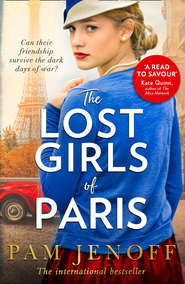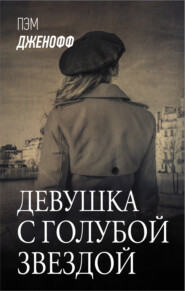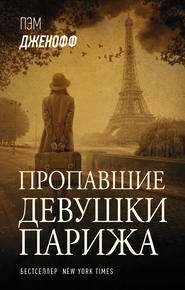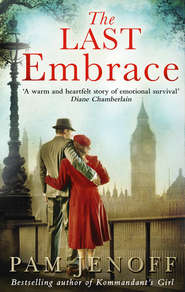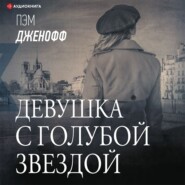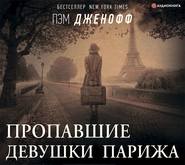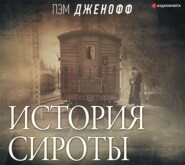По всем вопросам обращайтесь на: info@litportal.ru
(©) 2003-2025.
✖
Kommandant's Girl
Настройки чтения
Размер шрифта
Высота строк
Поля
I had hoped that, once Jacob had been dismissed from the university, he would be home more often, but instead his political meetings took on a frenetic pace, held in secret now at apartments throughout the city at night. Though he did not say it, I became aware that these meetings were somehow related to opposing the Nazis. I wanted to ask him, beg him, to stop. I was terrified that he might be arrested, or worse. I knew, though, that my concerns would not squelch his passion.
One Tuesday night in late September, I dozed off while waiting for him to come home. Sometime later, I awoke. The clock on our nightstand told me that it was after midnight. He should have been home by now. I leapt from bed. The apartment was still, except for the sound of my bare feet on the hardwood floor. My mind raced. I paced the house like a mad- woman, returning to the window every five minutes to scan the street below.
Sometime after one-thirty, I heard a noise in the kitchen. Jacob had come up the back stairway. His hair and beard, usually so well-kept, were disheveled. A thin line of perspiration covered the area above his upper lip. I threw my arms around him, trembling. Wordlessly, Jacob took my hand and led me into our bedroom. I did not try to speak further as he pushed me down to the mattress and pressed his weight on top of me with an urgency I had never felt before.
“Emma, I have to leave,” he said later that night, as we lay in the dark listening to the rumbling of the trolleys below. The sweat of our lovemaking had dried on my skin in the cool autumn air, leaving me with an inescapable chill.
My stomach tightened. “Because of your work?”
“Yes.”
I knew he was not referring to his former university job. “When?” I asked, my voice trembling.
“Soon … days, I think.” There was an uneasiness in his voice that told me he was not saying all that he knew. He rolled over to press his stomach against my back and curled his knees under mine. “I will leave money in case you need anything.”
I waved my hand in the dark. “I don’t want it.” My eyes teared. Please, I wanted to say. I would have begged if I thought it would have done any good.
“Emma …” He paused. “You should go to your parents.”
“I will.” When you are gone, I thought.
“One other thing …” His warmth pulled away from me and he reached into the drawer of the nightstand. The paper he handed me felt new, the candle-wax seal raised. “Burn this.” It was our kittubah, our Hebrew marriage certificate. In the rush of events, we had not had time to register our marriage with the civil authorities.
I pushed the paper back at him. “Never.”
“You must take off your rings, pretend we were never married. Tell your family to say nothing.” He continued, “It will be dangerous for you if anyone knows you are my wife once I am gone.”
“Dangerous? Jacob, I am a Jew in a country occupied by Nazis. How much more dangerous can it get?”
“Just do it,” he insisted.
“Okay,” I lied, taking the paper from him and sliding it under the mattress. I would not burn the one thing that would always link me to him.
I lay awake after Jacob had begun to breathe his long, even sleep. Softly, I touched his hair where it reached his collar, burying my nose there and inhaling his scent. I traced his hand with mine, trying to etch the shape in my mind. He shifted and grunted, already fighting the enemy in his sleep. As my eyelids at last grew heavy, I struggled to stay awake. There would be plenty of time for sleeping later.
But eventually I lost to my exhaustion. I awoke hours later to the sounds of the street sweepers brushing the sidewalks, and the rhythmic hooves of the deliverymen’s horses banging against the cobblestones. Outside, it was still dark. I ran my hand across the empty space in bed beside me, the sheets still warm and rumpled where my husband had lain. His musky scent hung heavily in the air above me. I did not have to look up to know that his rucksack and other belongings were gone.
Jacob had disappeared. We’d been married for six weeks.
“… hungry?” Krysia’s voice jars me from my thoughts. I realize that she has come into the parlor and has been speaking to me, but I have not heard what she has said. I turn to her reluctantly, as though I have been woken from a pleasant dream. She holds out a plate of bread and cheese toward me.
“No, thank you.” I shake my head, still half lost in memories.
Krysia sets down the plate on the coffee table and comes over to me. “That’s a beautiful picture,” she says, gesturing toward my wedding photo. I do not answer. She lifts up the photo of Jacob as a child. “But we should put these away so no one sees them.”
“Who would see them?” I ask. “I mean, it’s just the three of us here.” Krysia let her maid and her gardener go before Lukasz and I arrived, and in the weeks we have lived with her, there has been no one else inside the house.
“You never know,” she replies. Her voice sounds strange. “Better to be safe.” She holds out her hand and I hesitate, not wanting to surrender one of the last ties I have to my husband. She’s right, I realize. There’s no other choice. With a sigh, I hand her the wedding photograph and watch numbly as she carries it from the room.
CHAPTER 2
The morning Jacob disappeared, not daring to leave a note, I sat in bed for several minutes, blinking and looking around the bedroom. “He’s not coming back,” I said aloud. I was too stunned to cry. I rose and dressed, my movements reflexive, as though I’d rehearsed for this moment a thousand times. I packed my small suitcase as quickly as I could. Reluctantly, I took off my engagement and wedding rings, and slipped them, along with our marriage certificate, into the bottom of my suitcase.
At the door of our bedroom, I hesitated. On the crowded bookshelf by the door, nearly buried beneath Jacob’s physics textbooks and political treatises, lay a small stack of novels, Ivanhoe, Pride and Prejudice and a few others, mostly by foreign authors. I reached out to touch the bindings of the books, remembering. Jacob had given these to me shortly after we had met. He used to come visit me at the library every day, and often he brought me small gifts, such as an apple or a flower or, best of all, a book. I laughed the first time he did this. “Bringing books to a library?” I teased, examining the slim, leather-covered tome, a translation of Charles Dickens’s Great Expectations.
“But I am sure you do not have this one!” he protested in earnest, holding out the book, his brown eyes smiling. And he was right, for although I had already read many books, I had not possessed a single one of my own until then. My parents had encouraged learning and had sent me to the Jewish girls’ school as long as they could manage, but owning books, other than the family Bible and prayer book, was not a luxury we could afford. I treasured each of the half dozen or so books Jacob brought me, never telling him that I had read them all before from the library, some so many times I knew them almost by heart. I reread each one (the story was somehow different now that the book was my own) and then tucked it away safely in my dresser drawer. They had been among the few possessions I had brought with me from my parents’ house to the Baus’.
Picturing Jacob as he gave me the first book, my eyes burned. Where are you, I wondered as I stared at the bookshelf, and when will you be back? I brushed away a tear and studied the books. I can’t take them with me, I thought. They’re too heavy. But I won’t leave them all, either. Finally, I pulled two of the books from the shelf and squeezed them into my bag.
I walked to the front door of the Baus’ house, bags in hand. My eyes lingered on the rose-colored silk curtains, held back gracefully from the high windows with bronze-colored rope, the gold-rimmed china in the glass-front cabinet along the foyer wall. With the house empty, what was to stop vagrants, or even the Nazis, from looting the place? For a moment I considered staying. Jacob had been right, though; it would not be safe for me alone. Searches by the Gestapo had become commonplace, and several fine apartments in the city center had already been expropriated from their Jewish owners and given to high-ranking Nazi officers. I thought fleetingly of taking a few of the Baus’ belongings to protect them, perhaps a few small paintings or the silver candlesticks. But even if I had been able to transport these things to my parents’ tiny home, they would hardly be any safer there. Pausing in the foyer, I looked around one last time before closing the door behind me.
I made my way down Grodzka Street, away from the city center toward the Jewish quarter. As I walked, the houses grew more dilapidated, the streets narrower. I could not help but remember the first time I had allowed Jacob to escort me home from the library. He had offered for months, but I had always refused, afraid that if he saw the poor, religious world I came from, he would realize the differences between us and disappear forever. I had watched his face as we reached the edge of the Jewish quarter. I could tell by the way he bit the inside of his cheek and tightened his arm protectively around me that he was taken aback by the naked poverty, by the cramped, run-down buildings, and shabbily dressed inhabitants of my neighborhood. He never said a word, though. If anything, his affection toward me seemed to grow after that day, and he seemed determined to take me away to his world. Until now, I thought, staring at the desolate street before me. Now he was gone and I was returning to Kazimierz, alone. I could feel the tears gathering in my eyes once more.
Soon I reached Szeroka Street, the main square at the heart of the Jewish quarter. I paused, taking in the synagogues and shops that lined the square. Something was different from when I’d last visited just weeks ago. Though it was a weekday morning, the streets were empty and eerily silent. Gone were the neighbors calling to one another through open windows, the men arguing in front of the shops, the shawl-covered women carrying bundles of food and kindling. It was as if the neighborhood had disappeared overnight.
I decided to stop in the bakery and say hello to my father before heading to the apartment. The bakery, which consisted of just a tiny shop with an adjacent kitchen, was my father’s labor of love. He had opened it as a young man more than thirty years ago to support him and my mother, and had worked there every day since. Even after the occupation, he had stubbornly insisted upon keeping the store open with few supplies and even fewer paying customers in order to provide a source of food to our family, friends and neighbors, and to furtively produce small quantities of the Jewish breads, the challah loaves for the Sabbath and matzah for Passover that were now forbidden.
He would want me to stay, of course, to set my suitcases in the corner and put on one of his large aprons and bake with him. Helping my father was one of the things I missed most about not living in Kazimierz since I had gotten married. We used to talk for hours as we made and kneaded the dough together. Often he told me stories of his childhood, of my grandparents, whom I had never met, and the large general store they had owned, close to the German border. Sometimes he would grow quiet and I could hear him humming under his breath. I did not have to look over to know that he was smiling to himself, his dark beard white with flour.
I turned right at the corner of Jozefa Street and stopped in front of the bakery. I tried to open the front door, but it was locked. For a moment, I wondered if I had gotten my days wrong and the bakery was closed for Shabbes. The last time my father had not opened the bakery on a day other than Saturday or a Jewish holiday was the day I was born. I pressed my face against the window. The shop was dark inside. An uneasy feeling arose in me. It was after eight o’clock; my father should have been working for several hours already. I wondered if something was wrong, if he or my mother was sick. With a shiver, I hurried toward our apartment on Miodowa Street.
A few minutes later, I entered the dimly lit building where I had lived all of my life before marrying Jacob. Inside, the air was heavy with the odor of cabbage and onions. I made my way up the three flights of stairs. Breathing heavily, I set my bags down in the hallway, then turned the handle of the door to our apartment. “Hello?” I called, stepping into the living room. Morning sunlight streamed through the two large windows. I looked around. Growing up, I had not minded our tiny, cozy apartment, but after marrying Jacob and moving into the Baus’ grand house, my childhood home seemed somehow changed. On my first visit back after our honeymoon, I had taken in our yellowed curtains and frayed chair cushions with distaste, as though seeing for the first time how small and disheveled our apartment really was. I felt guilty at leaving my parents behind here while I lived in comfort with Jacob. But they did not seem to notice; for them it was the only home they had ever known. Now I have to live here again, I thought, wishing I did not. I was immediately ashamed at my snobbery.
“Hello?” I said again, louder this time. There was no response. I looked at the clock over the mantelpiece. It was eight-thirty, which meant that my father should have long since departed for the bakery. My mother never left this early, though; she should have been home. Something was not right. I sniffed the air. The lingering scent of eggs and onions, the breakfast my mother always cooked, was missing. Alarmed, I raced into my parents’ bedroom. Some of the dresser drawers were open, clothes hanging out. My mother never would have gone out with the apartment in such a state. My grandparents’ gray wool blanket, which usually lay folded at the foot of my parents’ bed, was gone.
“Mama …?” I called, panic seizing me. I ran back through the living room into the corridor and stared down the stairwell. The building was silent except for the echoing of my footsteps. I heard none of the early-morning noises that came through the paper-thin walls, sounds of people talking and pots banging and water running. My heart pounded. Everyone had disappeared. I froze, uncertain what to do.
Suddenly, I heard a creaking noise on the stairway above. “Hello?” I called, starting up the stairs. Through the railings, I could see a flash of blue clothing. “It’s Emma Gershmann,” I said, using my maiden name. “Who’s there?” It did not occur to me to be afraid. I heard one footstep, then another. A small boy, no older than twelve, came into view. I recognized him as one of the many Rosenkrantz children from the fourth floor. “You’re Jonas, aren’t you?” I asked. He nodded. “Where is everyone?”
He did not speak for several minutes. “I was playing in the courtyard when they came,” he began, his voice barely a whisper.
“Who came, Jonas?” I asked, dreading his answer.
“Men in uniforms,” he replied softly. “Lots of them.”
“Germans?” He nodded. Suddenly my knees felt weak. I leaned against the railing for support. “When?”
“Two days ago. They made everyone leave in a hurry. My family. Yours, too.”
My stomach twisted. “Where did they go?”
He shrugged. “They walked south toward the river. Everyone had suitcases.” The ghetto, I thought, sinking down to the bottom stair. Shortly after the start of the occupation, the Nazis had created a walled area in Podgorze, a district south of the river. They had ordered all of the Jews from the nearby villages to move there. It had never occurred to me that my family might have to relocate there, though; we already lived in the Jewish quarter. “I hid until they were gone,” Jonas added. I did not reply, but leapt up and raced back down the stairs to our apartment. At the entrance, I stopped. The mezuzah was gone, ripped from the wooden door frame. I touched the faint shadow that remained where the small metal box had hung for decades. My father must have broken it off as they left. He knew they weren’t coming back.
I had to find them. I grabbed my suitcase and closed the apartment door behind me, turning to Jonas, who had followed me down the steps. “Jonas, you can’t stay here, it isn’t safe,” I said. “Do you have anyone to go to?” He shook his head. I paused. I couldn’t take him with me. “Here,” I continued, reaching into my bag and passing him a handful of the coins that Jacob had left me. “Use this for food.”
He shoved the coins in his pocket. “Where are you going?”
I hesitated. “To find my parents.”






